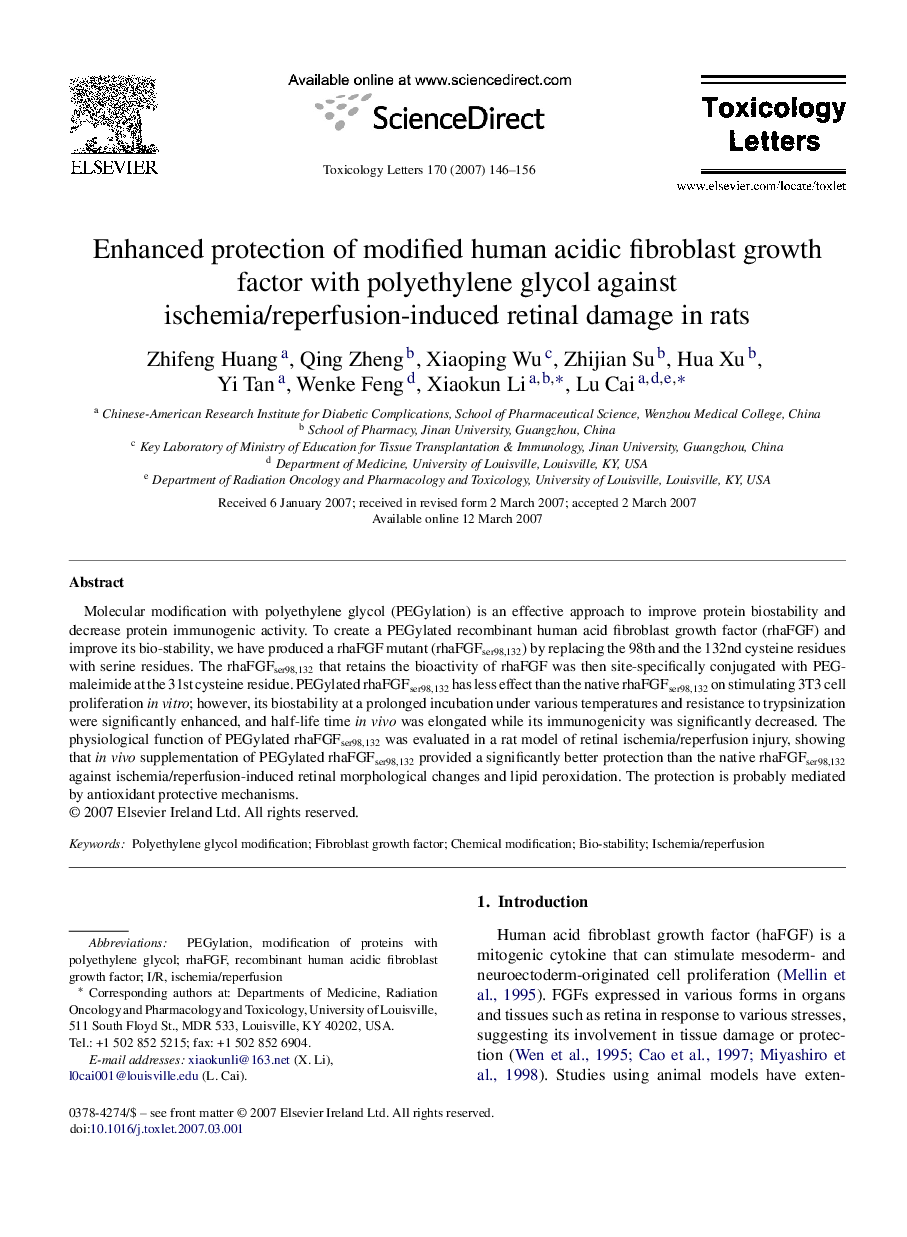| کد مقاله | کد نشریه | سال انتشار | مقاله انگلیسی | نسخه تمام متن |
|---|---|---|---|---|
| 2602253 | 1133381 | 2007 | 11 صفحه PDF | دانلود رایگان |

Molecular modification with polyethylene glycol (PEGylation) is an effective approach to improve protein biostability and decrease protein immunogenic activity. To create a PEGylated recombinant human acid fibroblast growth factor (rhaFGF) and improve its bio-stability, we have produced a rhaFGF mutant (rhaFGFser98,132) by replacing the 98th and the 132nd cysteine residues with serine residues. The rhaFGFser98,132 that retains the bioactivity of rhaFGF was then site-specifically conjugated with PEG-maleimide at the 31st cysteine residue. PEGylated rhaFGFser98,132 has less effect than the native rhaFGFser98,132 on stimulating 3T3 cell proliferation in vitro; however, its biostability at a prolonged incubation under various temperatures and resistance to trypsinization were significantly enhanced, and half-life time in vivo was elongated while its immunogenicity was significantly decreased. The physiological function of PEGylated rhaFGFser98,132 was evaluated in a rat model of retinal ischemia/reperfusion injury, showing that in vivo supplementation of PEGylated rhaFGFser98,132 provided a significantly better protection than the native rhaFGFser98,132 against ischemia/reperfusion-induced retinal morphological changes and lipid peroxidation. The protection is probably mediated by antioxidant protective mechanisms.
Journal: Toxicology Letters - Volume 170, Issue 2, 25 April 2007, Pages 146–156